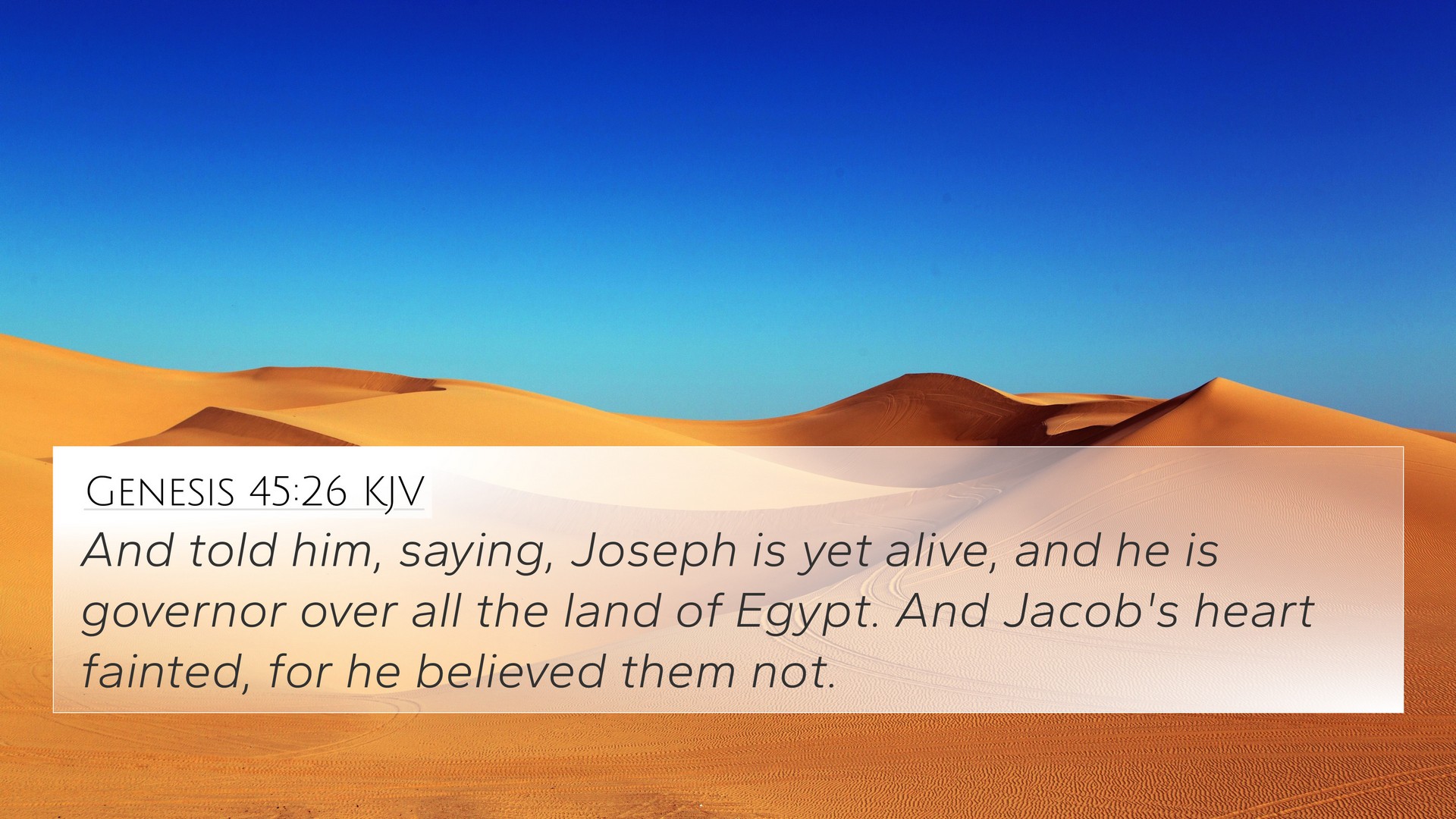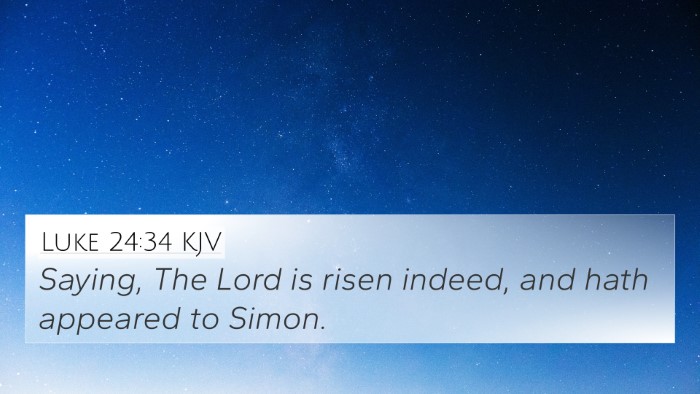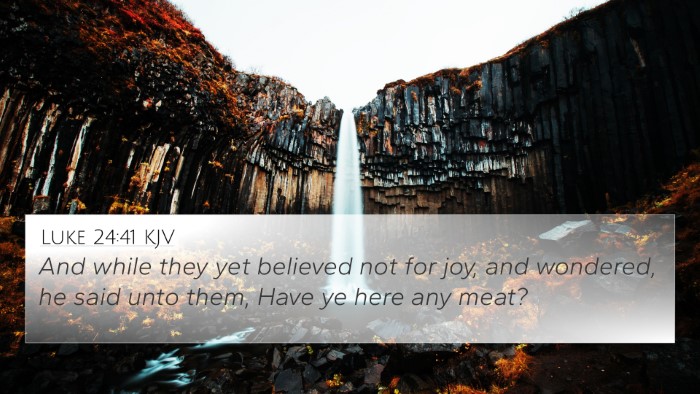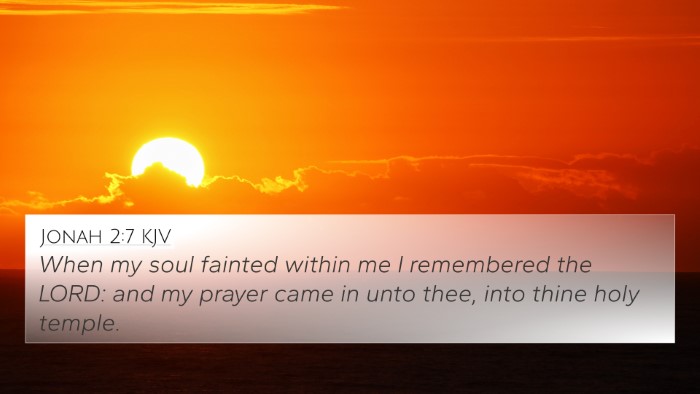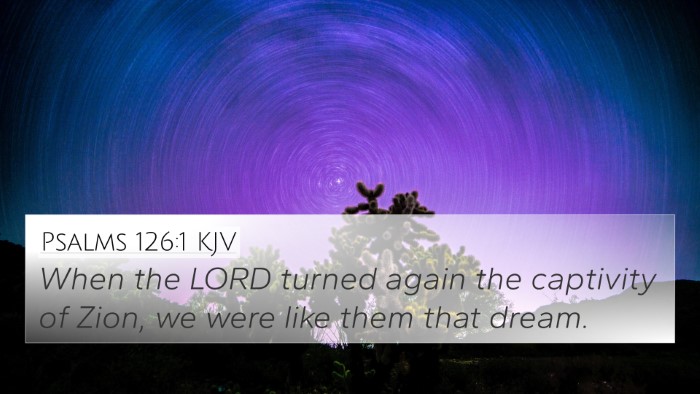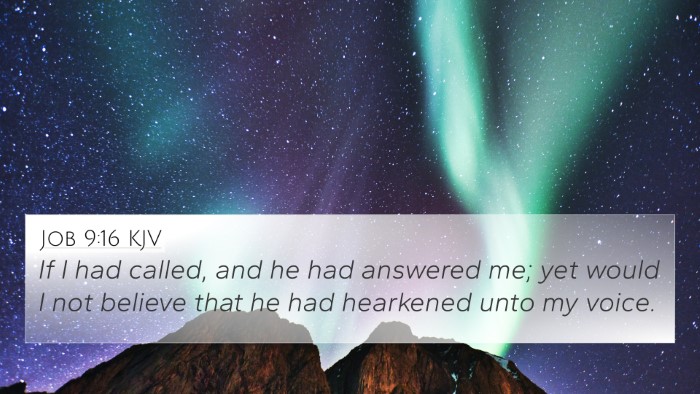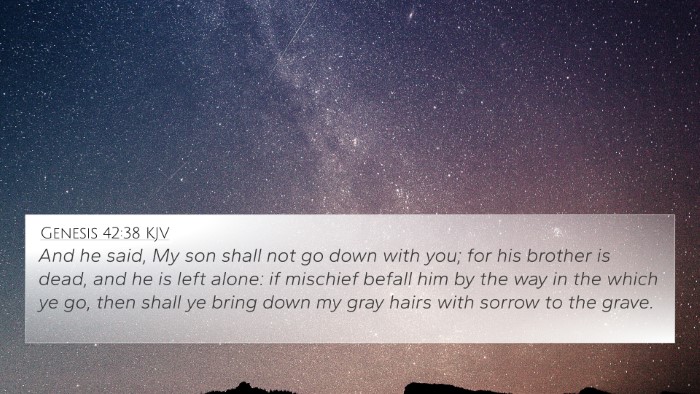Understanding Genesis 45:26
Bible Verse: "And told him, saying, Joseph is yet alive, and he is governor over all the land of Egypt. And Jacob's heart fainted, for he believed them not."
This verse captures the pivotal moment when Jacob learns that his son Joseph, whom he believed to be dead, is actually alive. The news brings both hope and disbelief, illustrating the emotional weight of revelation and the complexity of familial relationships.
Summary of Meaning
The verse reflects profound themes of loss and restoration, trust and skepticism, and the divine plan. Jacob's fainting heart symbolizes the shock and disbelief that can occur in moments of critical news, especially when it challenges one's understanding of reality.
Insights from Public Domain Commentaries
- Matthew Henry: Emphasizes the joy and confusion that accompanies unexpected news. He highlights the significance of Joseph's position in Egypt, which symbolizes the providence of God, working behind the scenes to bring about restoration and reconciliation.
- Albert Barnes: Notes Jacob's initial disbelief as a reflection of a broken heart. He comments on the shocking transformation from grief to the prospect of joy, showcasing the struggles of faith in understanding God's ways.
- Adam Clarke: Points out the emotional turmoil experienced by Jacob. Clarke reflects on the contrast between despair and the hope of reunion, underscoring the impact of family ties and God’s sovereignty in restoring relationships.
Thematic Connections and Cross-References
This verse links to various other scriptures that explore similar themes of revelation, restoration, and the emotional struggles of characters in the Bible. Below are key cross-references:
- Genesis 37:31-33: The moment Jacob is deceived, believing Joseph is dead, highlighting the depth of his loss.
- Genesis 42:23-24: Shows earlier family dynamics and the beginning of the testing of the brothers.
- 1 Samuel 16:7: God sees the heart, connecting to the idea of Joseph's truth and Jacob's perception.
- Psalms 30:5: "Weeping may endure for a night, but joy comes in the morning," paralleling Jacob's journey from mourning to hope.
- Luke 15:24: The prodigal son narrative echoes the theme of restoration and lost relationships.
- 1 Thessalonians 4:13: Encouragement regarding the state of loved ones, tying into Jacob's disbelief and eventual joy.
- Romans 8:28: The assurance that all things work together for good, reflecting God’s plan in Joseph's life.
- Hebrews 11:22: Joseph's faith in what was to come, linking back to the revelation of his life.
Exploring the Emotional Depth of Genesis 45:26
Jacob's faintness reflects a common human experience when faced with overwhelming news. His journey from despair to hope resonates with readers today, reminding us of the complexities of family, the impact of legacy, and the profound encounters with divine Providence.
Tools for Bible Cross-Referencing
Utilizing various tools and resources can enhance understanding of cross-references throughout the Bible:
- Bible Concordance: Essential for finding specific words and verses.
- Bible Cross-Reference Guide: Useful for exploring thematic connections.
- Comprehensive Bible Cross-Reference Materials: Providing deeper insights into interconnected scriptures.
- Cross-Reference Bible Study Methods: Facilitate comparative studies across books and verses.
Conclusion
Genesis 45:26 serves as a poignant reminder of faith's challenges and the hope of restoration. It invites readers to delve into the intricate relationships portrayed in scripture and explore the emotional and spiritual lessons that resonate through generations.
The interconnectedness of biblical themes, as illustrated by this verse, highlights the profound inter-Biblical dialogue that enriches our understanding of scripture and enhances personal and communal faith experiences.
